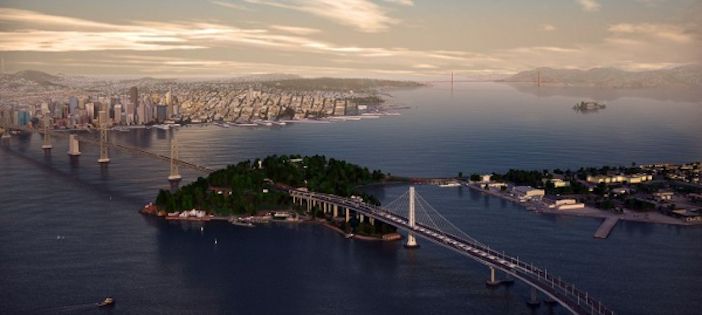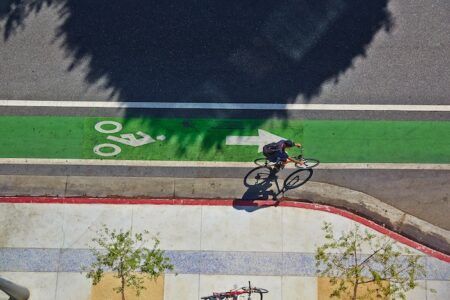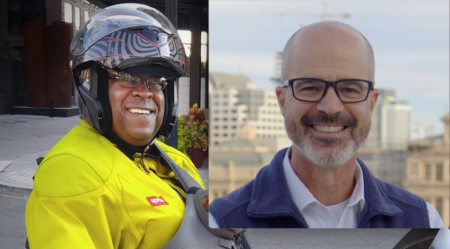San Francisco’s Metropolitan Transportation Commission (MTC) and the Association of Bay Area Governments (ABAG) have selected six Transformative Transportation Projects, plus six transformative operational strategies, as finalists in a public competition to find mobility improvement ‘megaprojects’.
MTC is the transportation planning, financing and coordinating agency for the nine-county San Francisco Bay Area, with ABAG acting as the official regional planning agency for the counties and their 101 cities and towns. The two agencies launched the competition earlier this year to solicit big, bold and billion-dollar (or more) ideas for improving mobility across the region. The campaign is part of the Horizon initiative undertaken by MTC and ABAG to explore a wide range of challenges and opportunities the Bay Area may face by 2050. The Horizon program was launched to engage the public, planners and policymakers through mid-2019 on questions that traditionally have been outside the regional planning process, including: how to respond to the emergence of autonomous vehicles; changing economic conditions; rising sea levels, earthquakes and other natural disasters; and other issues.
The 12 finalists, selected from a pool of over 500 megaproject ideas submitted by individuals and non-governmental organizations (NGOs), will be added to the Horizon Transportation Projects list along with 82 other potential new transportation projects. Each of these proposed projects will be analyzed to determine its efficacy in improving the region’s transportation system; depending on how they stack up, they may be considered for inclusion in Plan Bay Area 2050, the region’s next long-range plan for transportation, land use, economic development and resilience, which is slated for completion in 2021.
When the competition closed in early September, a panel of regional transportation experts evaluated all the submissions for feasibility, potential regional benefits, alignment with Horizon’s guiding principles, creativity and consistency with the minimum cost threshold. The call was for capacity-increasing projects that cost more than US$1bn and for lower-cost operational strategies.
The six finalists for transformative capacity-increasing projects are:
Optimized Express Lane Network + Regional Express Bus Network – SPUR and TransForm; Bus Rapid Transit on All Bridges – Tony Breslin; SMART to Richmond via a New Richmond-San Rafael Bridge – William Manley, Joseph Naujokas, Christopher Sork and Sonoma County Transportation & Land Use Coalition; Interstate 80 Corridor Overhaul – Arup; Regional Bicycle Superhighway Network – Arup; Bay Trail Completion – Jim Stallman.
The six finalists for transformative operational strategies consist of:
Integrated Transit Fare System – Eddy Ionescu and Jason Lee, Seamless Bay Area and SPUR; Free Transit – Mark Apton, Christian Rodgers, Danielle Venton and Gabriela Zuniga; Higher-Occupancy HOV Lanes – 3 Revolutions Book Club; Demand-Based Tolls on All Highways – Jeremy Besmer and City of San Jose; Reversible Lanes on Congested Bridges and Freeways – City of San Jose; Freight Delivery Timing Regulation – Daniel Ayers, Marc Brenman, Kevin Brooks and Cesar Plata.
“The competition was meant to inspire big ideas and game-changing innovations,” explained MTC’s chairman, Jake Mackenzie. “The selection committee initially planned to name no more than 10 finalists. But we received so many promising, outside-the-box ideas that would not just improve existing projects but also help expand the limits of what may be possible over the course of the next generation, that the panelists decided to take a closer look at 12 proposals.”





